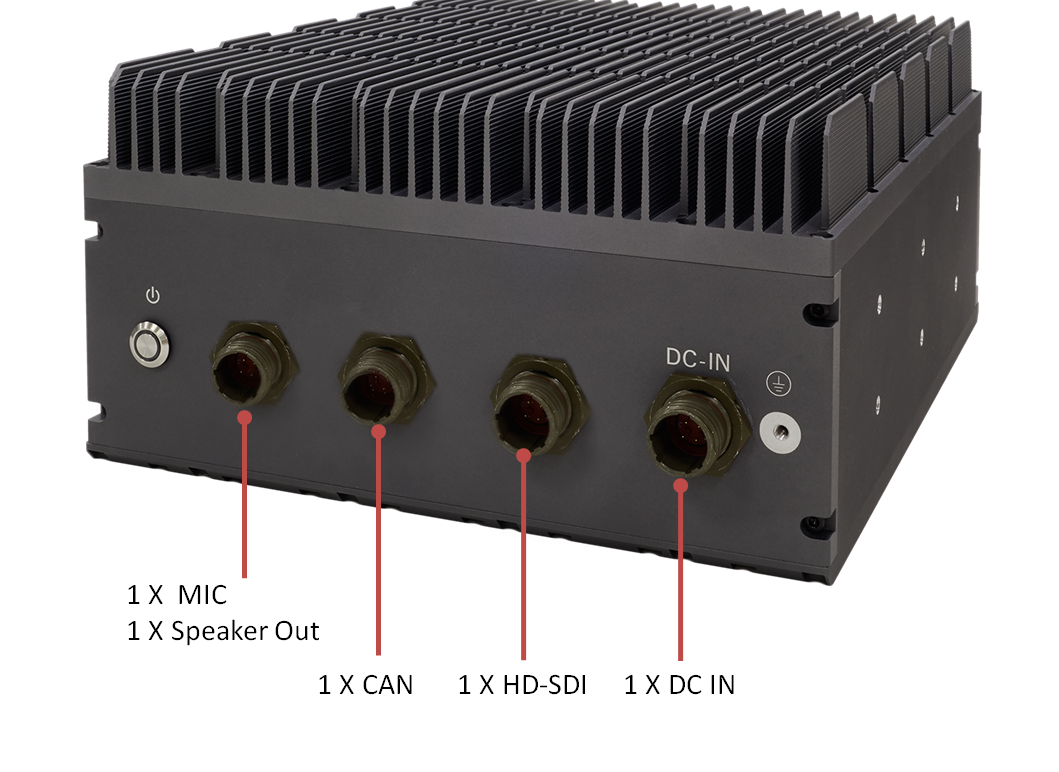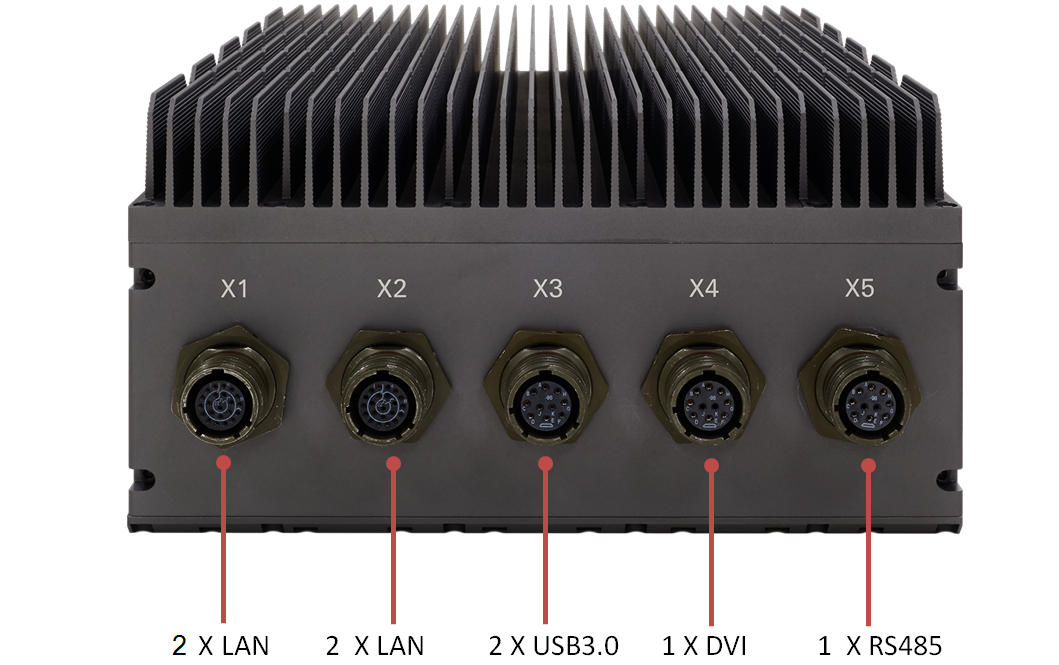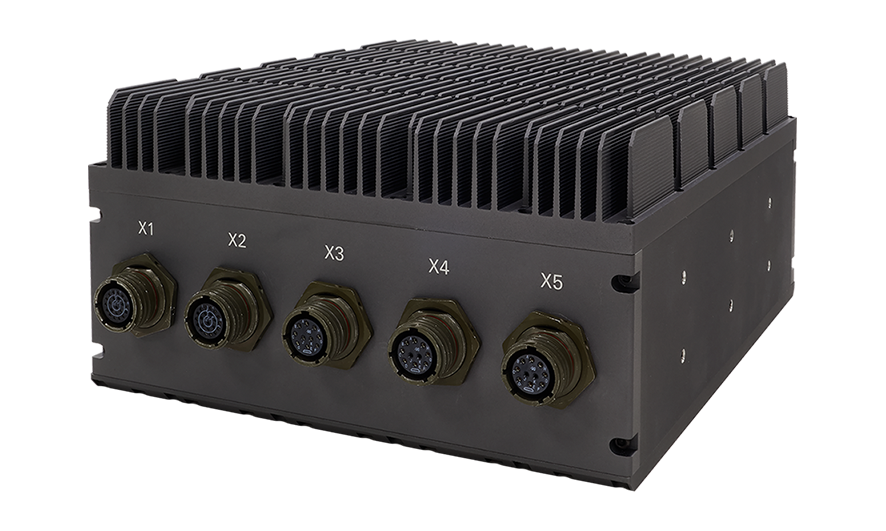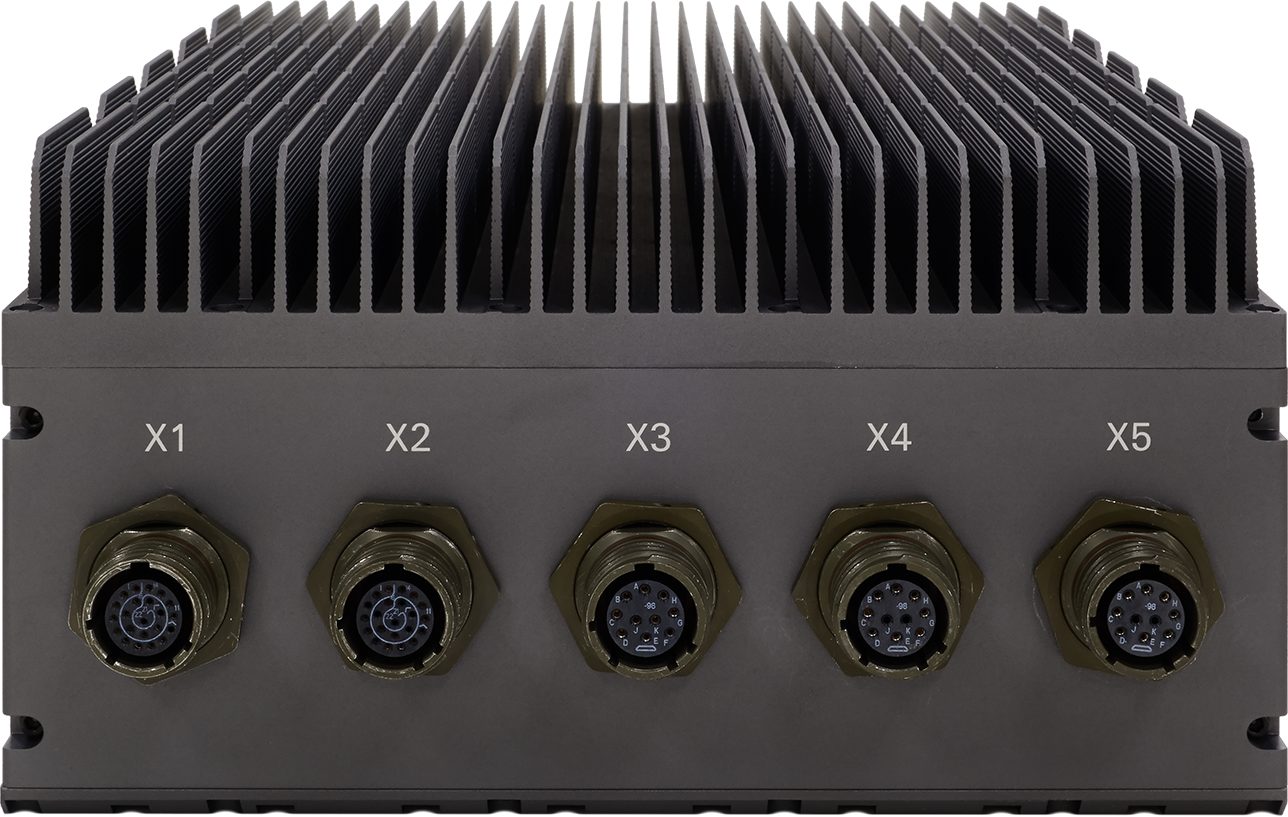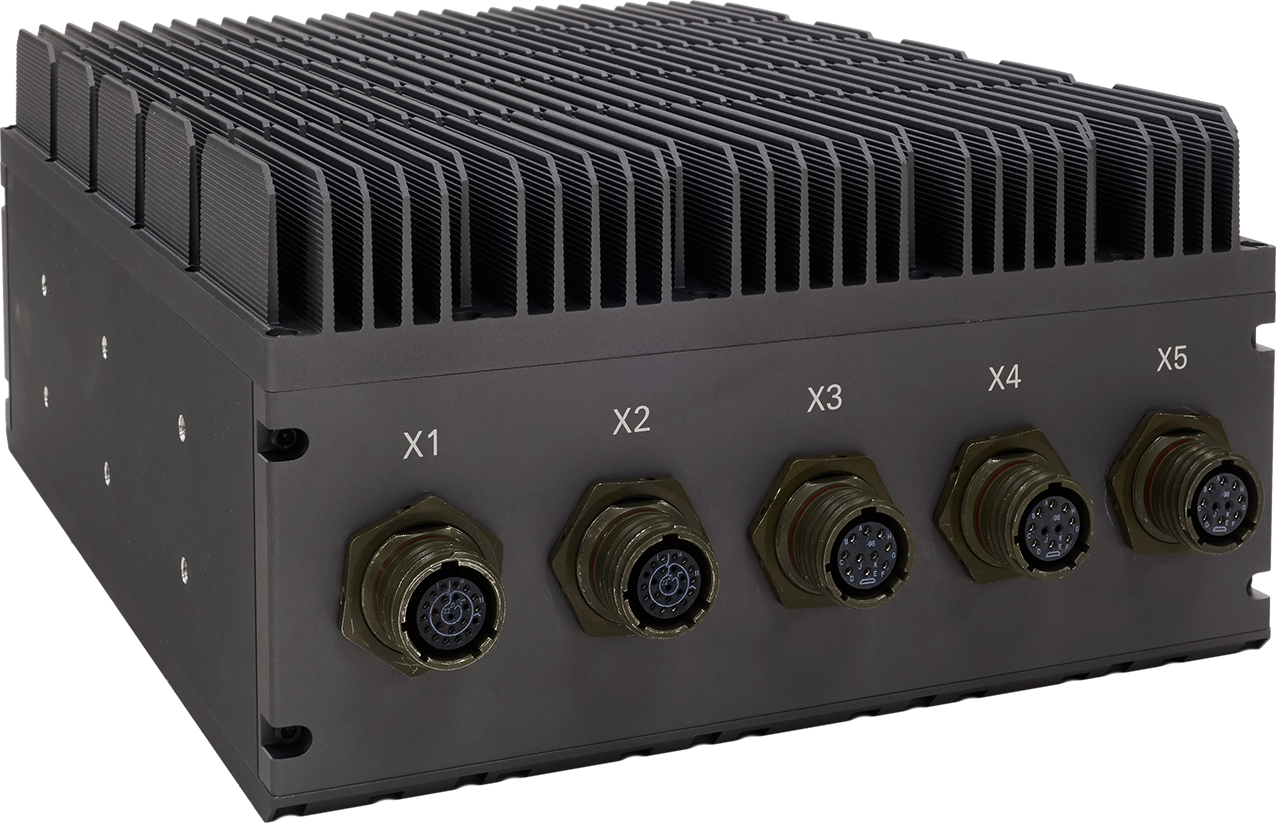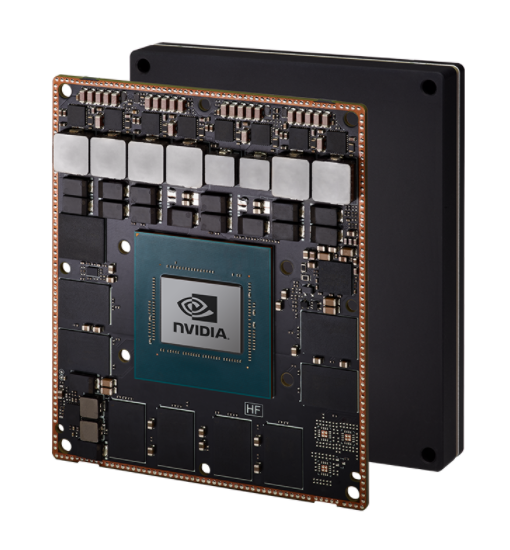Technical Profile
Introduction
AV710-X2 , the Rugged Computer is IP65 rated, making it one of the robustest embedded system based on Jetson AGX Xavier. 7Starlake combines the NVIDIA module with the carrier board that has been developed to meet high shock and vibration requirements. To protect the electronics against moisture, water and dust, the Rugged PC has an extremely robust housing and military grade D38999 connectors.
Through the combination of a NVIDIA Volta-GPU and ARM-CPU the AGX Xavier Rugged Computer is suitable for demanding intelligent vision applications. These include object recognition, traffic monitoring, environmental perception and behavior planning for cognitive robots or intelligent control of autonomous machines or vehicles. The computer is also suitable for machine learning.
System Main Board
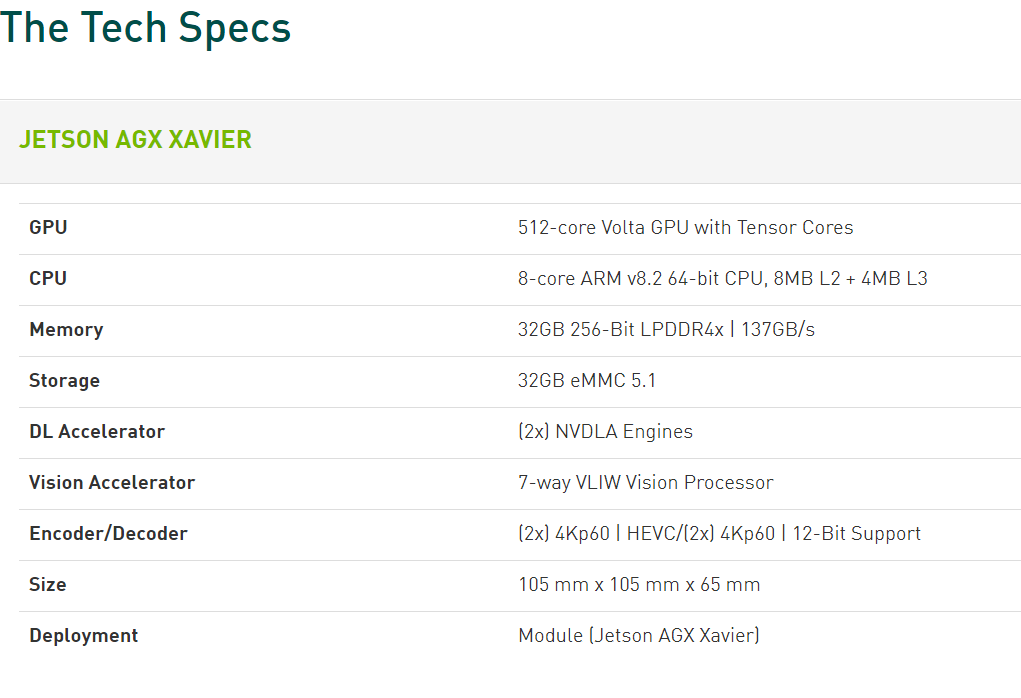

MIL-STD-461 is a military standard that establishes the control of electromagnetic interference (EMI) emissions and susceptibility characteristics of electronic, electrical & electromechanical equipment and subsystems for military equipment. EMI encompasses any undesired signals, “noise”, generated by electronic equipment. Keeping EMI under control is crucial for military applications, because if it’s out of control, the military will be detected by the enemy and it might cause a great loss. To design a product that meets strict requirements, engineers should possess extensive knowledge of both electrical and mechanical design to avoid unintentional generation, propagation and reception of electromagnetic energy, which may cause unwanted effects, for example, physical damage in operational equipment.
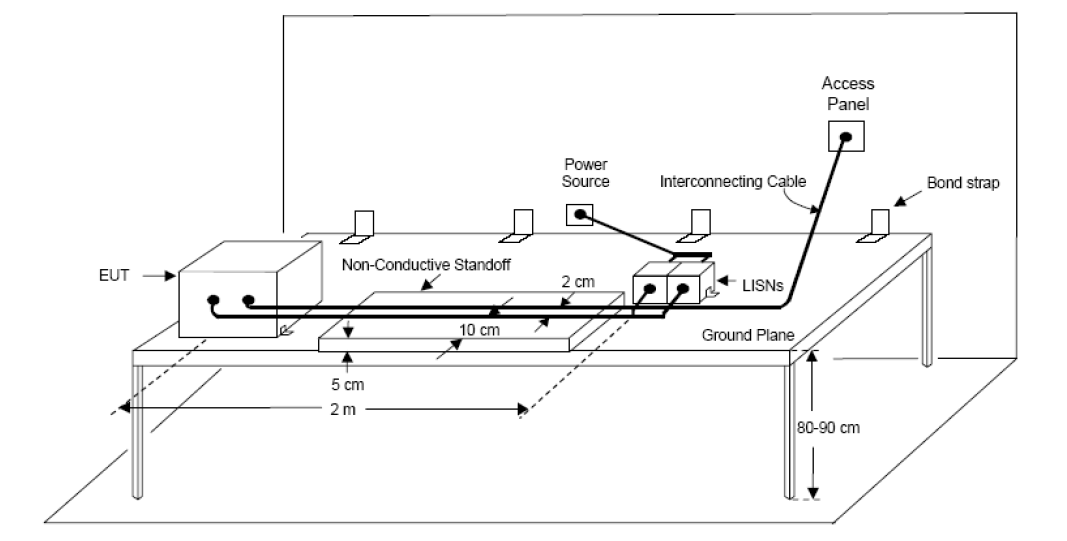
Block diagram of MIL-STD-461 test configuration
Rugged D38999 Series connectors
MIL-DTL-38999 is a high-performance cylindrical connector family designed to withstand the extreme shock, exposure and vibration that are commonplace in Defense and aerospace applications. D38999 connectors are lightweight and can stand up to environmental challenges. Made with removable crimp or fixed hermetic solder contacts, these connectors provide high-vibration characteristics and are suitable for severe wind and moisture problem areas. Equipped with MIL-38999 4/10/22 pin connectors TV07RW-11-54P, TV07RW-13-98S, and TV07RW-13-35S, AV710 is undoubtedly durable and ruggedized enough despite operating in the harsh environment.
Video over Ethernet
Power over Ethernet (POE) is a technology that lets network cables carry electrical power. For instance, a digital security camera normally requires two connections—a network and a power connection with isolated cables. However, a POE technology only needs one network cable, which can get network connection while carrying electrical power. Without being tethered to an electrical outlet, devices can be located wherever they are needed most, and repositioned easily if required. To meet our customers’ needs, AV710 offers optional POE delivery on D38999 connectors, which are extremely reliable and useful in outdoor applications.
Appearance
